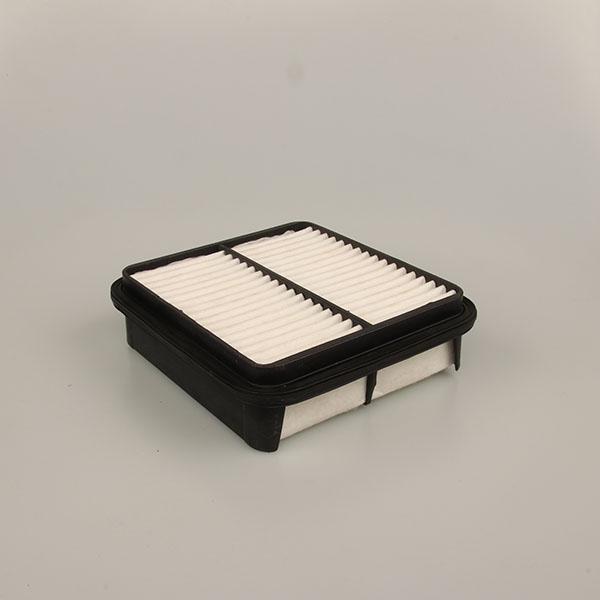Nov . 20, 2024 22:41 Back to list
best water filter material
The Best Water Filter Materials Ensuring Clean and Safe Drinking Water
Access to clean and safe drinking water is a fundamental need for every individual around the globe. However, contaminants and impurities in water sources can pose significant health risks. To address these concerns, water filtration has become an essential process in treating drinking water. The effectiveness of a water filter largely depends on the materials used in its construction. In this article, we will explore some of the best water filter materials and their benefits in ensuring high-quality drinking water.
Activated Carbon
Activated carbon is one of the most widely used materials in water filtration systems. Its porous structure provides a large surface area that adsorbs impurities such as chlorine, volatile organic compounds (VOCs), and various chemicals, enhancing the water’s taste and odor. The adsorption process allows activated carbon to effectively remove contaminants, making it a staple in both home water filters and large-scale municipal systems. Moreover, activated carbon filters are relatively inexpensive and easy to replace, which increases their accessibility for household use.
Reverse Osmosis Membranes
Reverse osmosis (RO) technology employs a semipermeable membrane that separates contaminants from water. This method is particularly effective in removing dissolved solids, heavy metals, and pathogenic microorganisms. The RO membranes can filter out particles as small as 0.0001 microns, ensuring that even the tiniest pollutants are removed. While reverse osmosis systems tend to be more expensive and require a more complex installation, they provide some of the purest forms of drinking water available. They are especially beneficial in areas where groundwater may be contaminated with agricultural runoff or industrial waste.
Ceramic Filters
Ceramic filters utilize a porous ceramic material that effectively removes bacteria, protozoa, and sediment from water. The tiny pores in the ceramic block contaminants while still allowing water to pass through. These filters are durable and can be cleaned and reused, making them an eco-friendly option. Additionally, ceramic filters do not require electricity to operate, making them an ideal choice for rural or off-grid locations. By keeping microorganisms at bay, ceramic filters can significantly reduce the risk of waterborne diseases.
best water filter material

Ion Exchange Resins
Ion exchange resins are another effective material used in water filtration, especially for treating hard water. These resins work by exchanging undesirable ions (such as calcium and magnesium) with more benign ones (like sodium). The process softens the water and helps remove heavy metals and other contaminants. Ion exchange is particularly beneficial for household water softeners, improving the quality of water for drinking, cooking, and cleaning.
UV Light Filters
Ultraviolet (UV) light filters employ ultraviolet radiation to kill bacteria, viruses, and other microorganisms in water. This method is highly effective in disinfecting water without the use of chemicals. UV filters are often used in conjunction with other filtration methods, providing an additional layer of protection against pathogens. While UV light filters do not remove physical contaminants, their ability to purify water at the microbial level makes them a popular choice for both home and commercial water treatment systems.
Conclusion
Choosing the right water filter material is crucial for ensuring access to safe drinking water. Activated carbon, reverse osmosis membranes, ceramic filters, ion exchange resins, and UV light filters each bring unique benefits to the table. Depending on the specific contaminants present in the water supply, homeowners can select a filtration system that best suits their needs.
As awareness of water quality issues continues to grow, investing in effective water filtration has become increasingly important. Proper filtration not only enhances the taste and safety of drinking water but also contributes to overall health and well-being. By understanding the various water filter materials available, consumers can make informed decisions and enjoy the peace of mind that comes with having clean, safe drinking water. Ultimately, the best filtration system is one that addresses the specific impurities in your water source while fitting your lifestyle and budget.
-
Premium Acrylic-Resin Air Filter Paper in Roll | High Efficiency
NewsAug.19,2025
-
PLAB-6 A B Two Compounds Filter End Cap Gluing Machine-Hebei Filter Man|Precision Gluing,Automated Production
NewsAug.18,2025
-
PLAB-6 A B Two Compounds Filter End Cap Gluing Machine - Hebei Filter Man Automotive Parts Trading Co., Ltd | Adjustable Gluing Parameters, Automated Precision
NewsAug.18,2025
-
PLAB-6 A/B Two Compounds Filter End Cap Gluing Machine-Hebei Filter Man|Precision Engineering&Efficiency
NewsAug.18,2025
-
Active Carbon Air Filter for Purifier: Superior Air Quality & Odor Removal
NewsAug.18,2025
-
PLAB-6 Gluing Machine-Hebei Filter Man|Precision Gluing,Automated Filtering
NewsAug.17,2025
